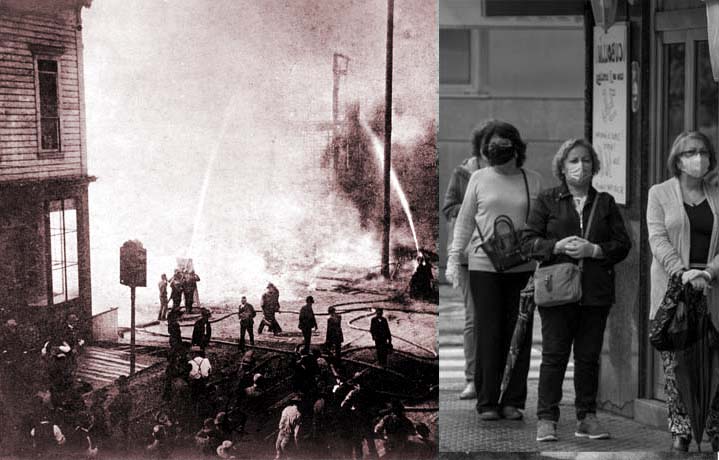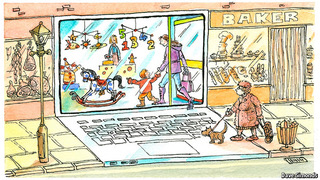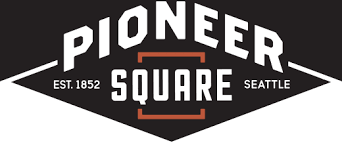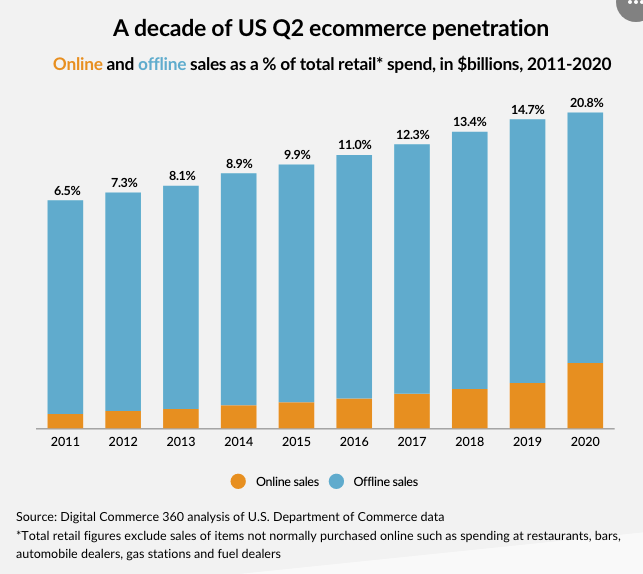

After the Great Seattle Fire of 1889 destroyed the entire central business district of Seattle in less than one day, the city’s first brick and mortar buildings could be seen emerging from the rubble, brick by brick, to 20 feet above sea level, like a Phoenix rising from the ashes. The disaster transformed the architecture of the Pacific Northwest’s business landscape and made rebuilt Seattle the largest city in the newly-admitted state of Washington. The original bricks and mortar are still visible today in Seattle’s Pioneer Square on the fabled Underground Tour.

In the disruption of the COVID-19 pandemic that has caused widespread store closures and stay-at-home orders, redirecting consumer traffic to curbside pickups and drive-through windows, the landscape is changing once again.
This time a new avenue is affording safe passage for store owners and customers alike to access a multi-lane expressway. The new anti-viral “vaccine” is converting old bricks to new clicks: The hyper-local ecommerce marketplace.
Pioneer Square Engages the Community

Disasters can shake up industries and wake up communities.
“Ecommerce penetration was pulled forward 2-3 years, and trends that already were here are being magnified,” said Eric Roth, managing director at investment firm MidOcean Partners, of the last two quarters.

Chris Woodward would agree. As business development manager of the Pioneer Square Business Alliance, Chris spearheaded the Support Local Pioneer Square Shopping Hub as an online marketplace for Pioneer Square merchants.
In Pioneer Square, Woodward succeeded in galvanizing 45-50% of the local business community, or 215 businesses, for launch in March of 2020.
The project was a whole lot easier to drill down on than the Seattle tunnel. Merchants would simply submit an online form to the Support Local platform to upload their business profile, logo, product information, photos and pricing, creating their own local shop-site. Each merchant could use their shop’s legacy credit card processor or use PayPal which was built-in for businesses that did not have a payment processor. The platform has expanded on those features with an email request form to order-by-phone or arrange local delivery with a “Virtual Tip Jar” as additional ways to patronize a business at a click.

“DEI Creative is a great partner to work with,” said Woodward. “From thoughtfully walking us through their platform during our early initial exploratory meetings to meeting our every site maintenance need, they have consistently provided the creative thinking, scrupulous design, and project management necessary to set up the Support Local – Pioneer Square platform for success.”
Once the Pioneer Square shopping hub launched, Woodward continued to provide local support of a different stripe — education. Three initial Zoom workshops were fashioned for merchants on the topics of Marketing, Creating Content and User Engagement. These are being followed by sessions on Profitable Pricing and Creative Collaboration among businesses. The team also worked with Google and the Grow with Google program to provide additional training, and brought in Seattle-based consultant Chris Guillot of Merchant Method for a session on marketing with video.
Best Supporting Role for Local Storefronts
The turnkey Support Local system was designed and implemented by DEI Creative, led by founder Sara Green and a talented crew of designers, programmers and producers behind the online marketplace platform.

Created largely in response to the COVID pandemic, the DEI Creative firm has also deployed the Support Local platform to empower the local business development efforts for other Seattle area markets, including West Seattle, Capitol Hill and Ballard, the inaugural effort.
A unique browsing experience, the Support Local system was created as both a portal for community loyalists and out-of-town fans to taste the local flavor and stylings of distinctive neighborhood culture.

Each store can add up to twenty (20) products to the platform, all in self-service mode. While an administrator must grant permission for each store to go live, having complied with the community terms of service, the set-up is basically self-serve, 24/7/365. That’s a “go-live” set-up for a business that signs up on day one, day 45 or day 195.

The 10-20 product limit is in place so that no single merchant can flood the system with products and dominate in a single category. Once onboard, the presentation of products on the home page or on a category page is randomized. Refresh the page and a new product assortment will be displayed.
Pioneer Square’s Woodward had compliments for the platform: “For customers, the Support Local platform has wonderful front end functionality — it is visually appealing, easy to navigate, and responsive across different device types such as tablets and desktops. For business owners, the Support Local platform has a clean back end set up- featuring a set of flexible but limited product management options.”
“Our mission was to make it incredibly easy for small businesses to use, giving each one the opportunity to sell online, even if they’d never had an online store before,” explained Sara Green.
Remaking the Ecommerce Connection Economy

During the first wave of the COVID-19 pandemic, during the April-June period of 2020, more than $1 in every $5 spent came from orders placed on the Web. Ecommerce’s stellar performance managed to entirely offset a $41.23 billion decline in offline spending – the only recorded instance in which the online channel staved off an overall drop in retail when in-store buying declined. That means online accounted for all gains in the retail market for Q2 2020, and then some.
“All verticals experienced the largest gains in digital revenue since Salesforce began tracking sales performance,” said Rob Garf, vice president of industry strategy and insights at Salesforce. “The growth in digital shopping that we’ve seen since the pandemic started has set a new baseline, and consumer habits won’t snap back to pre-pandemic ways,” Garf added. He expects current buying behavior will result in 30% of all retail revenue coming from online purchases by the holiday season.
CommerceHub, another ecommerce software provider, reported an even higher 109.9% year-over-year increase in online order volume for its retail clients. While data amassed from more than 12,000 brands and suppliers using CommerceHub’s platform represents global volume, numbers primarily reflect activity in the United States.
“All commerce is becoming ecommerce,” said Frank Poore, founder and CEO of CommerceHub. “The way consumers shop has officially shifted.”
Ballard Inaugurates the Support Local Platform
For the Ballard Marketplace, which became the prototype for the Support Local platform, the mission was a question of survival.

“Over the years, DEI Creative and the Ballard Alliance team have worked seamlessly on a number of different projects, including the Visit Ballard website. When we realized that the pandemic was going to cause shutdowns in late February 2020, we immediately jumped on a call with their team to build something that would help our local businesses survive the shutdown and beyond. The Ballard Marketplace – Support Local portal was born out of necessity as a tool to provide a platform for local retailers, service businesses and restaurants to sell and showcase their offerings online,” said Ballard Alliance Executive Director, Mike Stewart.
The inaugural unveiling of Support Local saw 15,000 unique users show up in the first month the marketplace was live, generating 55,000 page views.
“The Support – Local Ballard Marketplace gives our organization a consolidated location to promote our local businesses through marketing campaigns, offers customers a virtual Ballard shopping experience and businesses a platform to sell items online. The Ballard Alliance will use this platform post-pandemic as an additional option to connect consumers and businesses and help provide access to our neighborhood’s offerings online. We continue to help the site evolve, with the help of the DEI Creative team, and constantly look for ways to use it to help our local businesses thrive,” Stewart shared.
“The Support Local site makes it fun and easy for consumers to shop, as if they are strolling through the neighborhood they love (but online!)” summarized Sara Green. The battle cry is “Champion Community.” [24×7]




















